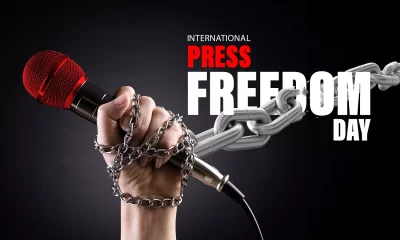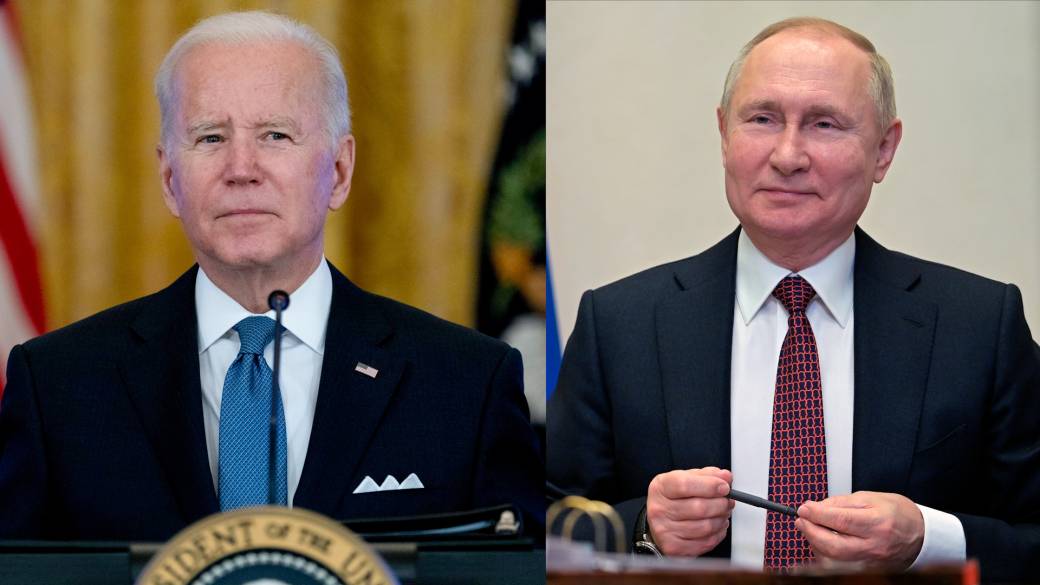The United States (U.S.) President Joe Biden may be perceived to be intimidating the Russian President Vladimir Putin with threats of severe consequences if Russia attacks Ukraine. The Russian President construed such threats as provocative, escalating the existing border tension in Ukraine. The U.S. White House in an unsuccessful diplomatic telephone conversation on Saturday on dousing the tension in Ukraine, threatened that Russia faces “swift and severe costs” if Russian troops invade Ukraine.
A Russian readout of a call with French President Emmanuel Macron, unveiled that President Vladimir Putin berated the U.S. and its Western allies over claims of impending invasion, saying that such alarm is “provocative speculation” to incite conflict in the former Soviet territory.
In the buildup of tensions over the border crisis, Russia was said to have deployed over 100,000 troops to nearly surround Ukraine, strengthening preparations for war after the U.S. raised alarm that an all-out invasion could begin “any day”. Russia, in a show of force, carried out what many considered the biggest drills of the Navy across the Black Sea.
The White House had disclosed that US President Joe Biden had ‘threatened’ Russian President Putin: “If Russia undertakes a further invasion of Ukraine, the United States together with our Allies and partners will respond decisively and impose swift and severe costs on Russia.”
Biden had vowed: while the US is interested in diplomacy, “we are equally prepared for other scenarios.”
A senior U.S. official had expressed fear that while the Biden-Putin talks were “professional and substantive”, produced “no fundamental change” in dynamics.
Russia’s defence ministry may have exacerbated the situation with the declaration that the Russian Navy had chased off a U.S. submarine that had purportedly navigated into Russian territorial waters near the Kuril Islands in the northern Pacific.
Putin had held afternoon talks with President Macron of France. The French President indicated that “both expressed a desire to continue dialogue”. The U.S. expressed pessimism over dialogue, saying that there is “no clear progress.”
Russia pulled out some of its diplomatic staff from Ukraine on Saturday, thus, heightening the tension and fear of war.
The Russian foreign ministry in Moscow had explained that the pull out was precipitated by fears of “possible provocations from the Kyiv regime”.
The U.S. and the U.K. had withdrawn many of their remaining military advisors from Ukraine. The US Embassy further directed “most” of its Kyiv staff to leave.
The President of Ukraine, Volodymyr Zelensky, on a visit to troops stationed near the Russian-annexed peninsula of Crimea, declared: “right now, the people’s biggest enemy is panic”. He appealed to Ukraine citizens to “remain calm” even as Western citizens flee the country.
However, courageous thousand Ukrainians defied the winter cold to protest in Kyiv to express unity as the storm gathered and fears of war intensified.
The protesters, waving Ukraine’s blue-and-yellow flags, and singing the national anthem, declared that “Panic is useless”; asserting: “We must unite and fight for independence.”
While the U.S. and the European allies are muscling to confront Russia, China and North Korea are curiously watching from the sideline. They are on red alert.

 Comments and Issues6 days ago
Comments and Issues6 days ago
 Education7 days ago
Education7 days ago
 Comments and Issues7 days ago
Comments and Issues7 days ago
 Comments and Issues6 days ago
Comments and Issues6 days ago
 Comments and Issues6 days ago
Comments and Issues6 days ago
 Energy7 days ago
Energy7 days ago
 Football7 days ago
Football7 days ago
 Football1 week ago
Football1 week ago

